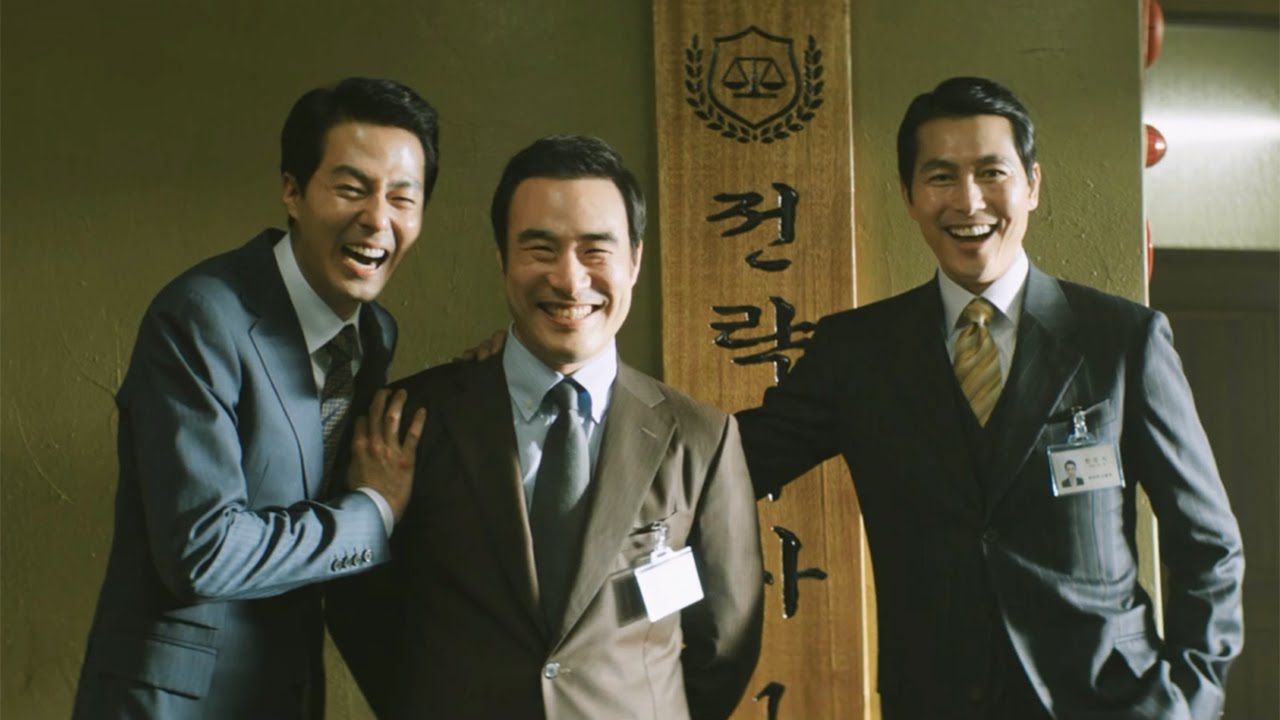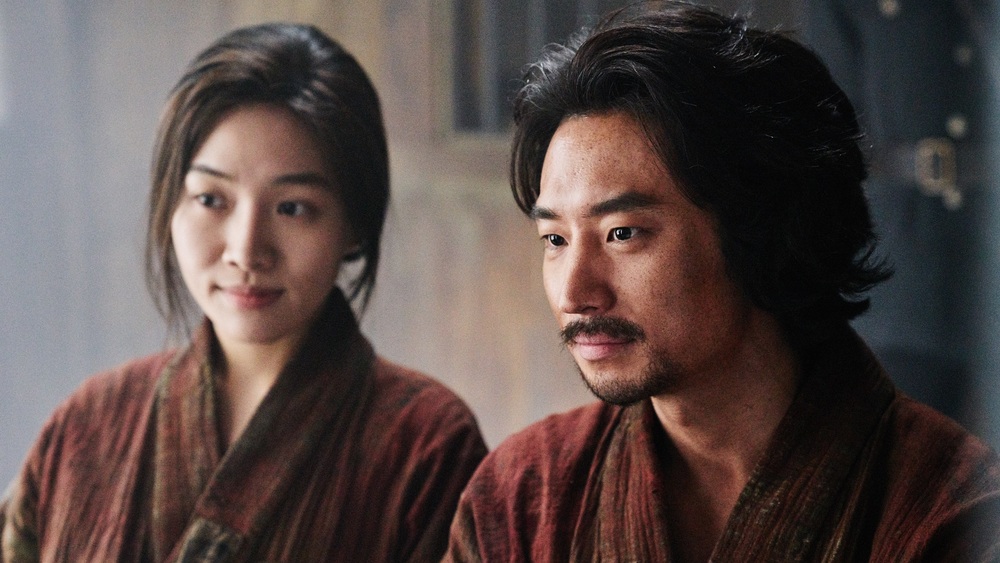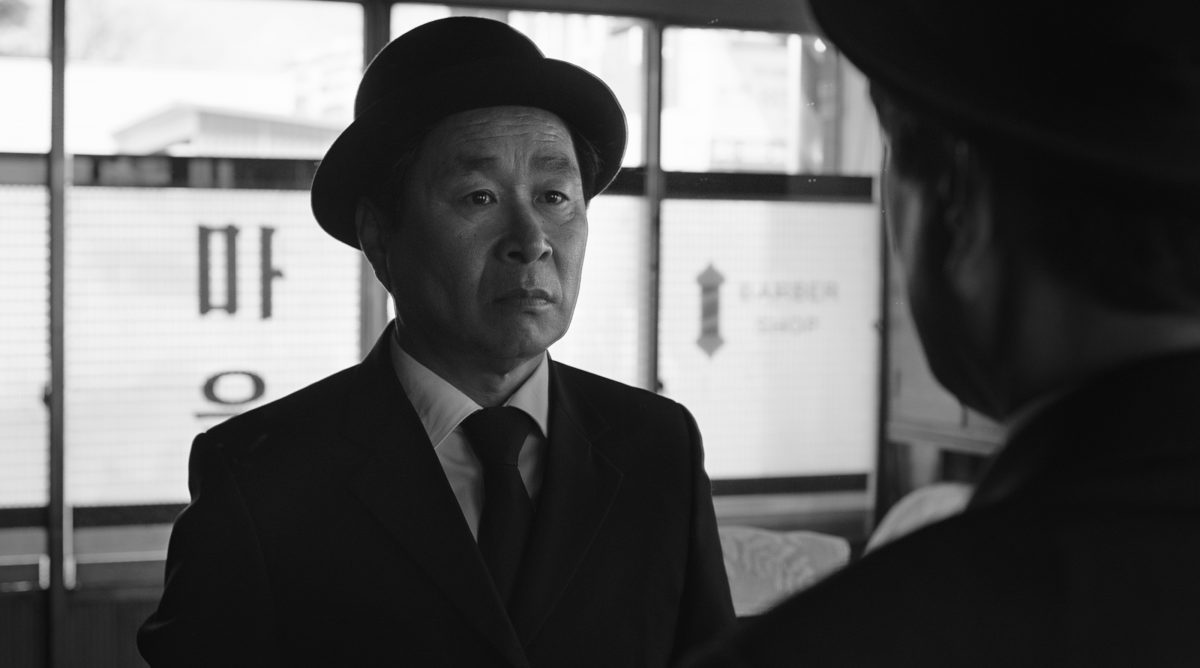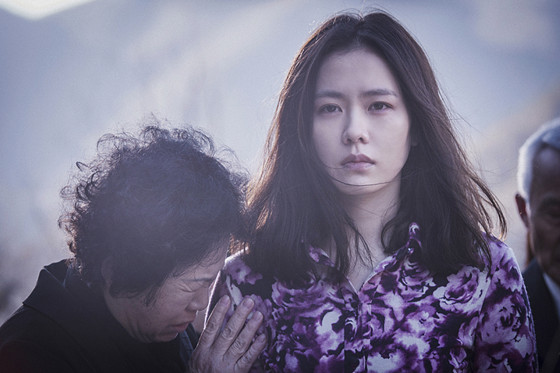5. The King (Han Jae-rim)

The story revolves around Park Tae-soo, the delinquent son of a petty criminal who, after watching his father getting beaten by a man much weaker than him, who happens to be a prosecutor, decides that this is what he wants to be. Not having studied in his whole life, though, Park finds himself perplexed, although the solution eventually is presented to him.
After having to face disbelieving teachers, intense antagonism and living in a world he knew nothing about, he manages to enter the most prestigious law school in the country, and eventually becomes a prosecutor. Soon, though, he realizes that his job is not that prestigious, as it involves long hours and meager pay.
After insisting on a case that seems to hide something amiss, of a man molesting a teenage girl, Park is introduced to Yang Dong-cheol, a man who eventually brings him to the circle of the “1%” of prosecutors that truly move the ropes and make tons of money in the process. Han Kang-sik, an extremely influential man who retains an archive of everything unlawful the strongest men and women in the country have ever done, and uses it to forward his and his team’s goals, is the undisputed head of the group, with his ties reaching from the President to the mafia and from the press to big law firms.
Park becomes a member of the team and even forms his own mafia connections with Choi Doo-il, a childhood friend who eventually takes over Seoul’s underground. As the leadership of the country changes, Han manages to stay in power, with Park benefiting the most by the group’s status. However, nothing lasts forever.
Han Jae-rim directs and pens a movie that manages to include a number of popular themes without hitting the reef of commercialism, and even more importantly, the one of the melodrama. In that fashion, the movie includes the “rise to power” and the subsequent downfall theme; the historical based-on-true-events background (including actual footage), as many actual, political and non-events are used; the corruption deriving from the connection among the press; the judiciary; the politicians; and most of all, the mafia.
The question of “can a man resist temptation?” is another central theme, with the answer provided being as clear as the consequences of the decision. Add to that some violence, a bit of gore, and a number of gorgeous women in secondary roles and you have the backbone of the film. The only thing that bothered me in terms of story is that the end goes a bit too far.
4. A Taxi Driver (Jang Hoon)

The Gwangju Uprising has been a recurring theme in South Korean cinema, with “A Petal,” “National Security” and “May 18” being among the most renowned samples. Jang Hoon, who gave us the masterful “Rough Cut” in 2008, takes a shot at the theme, through a script based on the true story of a taxi driver and his passenger, a German reporter.
The aforementioned driver is Man-seop, a widower living with his 11-year-old daughter, trying to make ends meet, although he rarely succeeds, being in debt and having very little money. His only friend seems to be his landlord, although he also owes him rent money. In an instance where the two of them are eating in a restaurant filled with taxi drivers, he overhears one saying that he has a drive to Gwangju scheduled that pays 100.000 Won. Not having any clue about the riots in the area, and the fact that the army has forbidden entrance to the city, he hijacks the ride and ends up carrying Peter, a German reporter, who wants to cover the events.
Man-seop knows some English from the time he spent in Saudi Arabia, but his communication with his passenger becomes tense from the beginning, and even more when the two of them have to use back roads and lies to reach Gwangju. Once there, Man-seop witnesses the truth about his passenger, while his avariciousness soon gets him into trouble with the local taxi drivers, who have allied themselves with the university students against the government and the army.
Man-seop, who was totally misinformed about the actual situation, witnesses the atrocities of the army, in a series of life-changing experiences that even threaten his life. During the events, the passenger and driver meet Hwang Tae-sool, a kind of a leader of the taxi drivers of the area, and Jae-sik, a university student who acts as translator for Peter. The four of them form a group with a mission of getting the footage to Japan, in order to show to the world what is happening in the area.
Jang takes a new approach to the subject through a story that is split into two parts. The first one takes place in Seoul and has a rather comedic style, as we witness the “adventures” of a poor devil trying to make ends meet, a style in which Song Kang-ho thrives. Some dramatic sequences are still present through his relationship with his daughter, but are minor.
The second part takes place after their arrival in Gwangju, with the film transforming into a rather pointy drama, which occasionally functions as an agonizing action thriller. The simply entertaining moments are also not missing from here, as in the scene in the house, but the drama is the one that dominates this part.
3. Anarchist from Colony (Lee Joon-ik)

The story begins in 1923 in Japan, where Park has formed an anarchist group comprising of both Korean and Japanese citizens. Eventually, Kaneko Fumiko, another anarchist and nihilist, is drawn to him due to his writings and enters his group, becoming his lover. The group has plans of bringing explosives from Shanghai to use toward crucial targets (supposedly Japan’s Crown Prince Hirohito), but most of their plans fail. The only thing they amount to is beating individuals they consider enemies of the “cause.”
Their situation changes after the Great Kanto Earthquake (September 1, 1923), when the anti-Korean sentiments fueled by false rumors by the government and the press result in the death of thousand Koreans in the area, in a pogrom implemented by vigilante groups and the police. The members of the group decide to let themselves be imprisoned in order to survive, but the Japanese decide to find a scapegoat in Park to derail the international press and public opinion from the pogrom.
Subsequently, Park becomes a subject of interrogation as he is accused of treason. Kaneko, who cannot stay away from him, confesses the same and endures the same fate. However, both of the accused are not ready to go without a fight and Mizuno, the Japanese politician behind the whole scheme, finds himself having to deal with a lot more than he bargained for.
Lee Joon-ik uses a very interesting and quite unusual style of narrative for such a subject, retaining a happy-go-lucky sense for the majority of the film’s duration. What is impressive is that he manages to retain this style even in the most dramatic moments, like the violence against Koreans or the beatings of the anarchist group, the interrogations, the trial, even the rather dramatic ending.
In cinema such as Korean cinema, where the melodrama seems to be everywhere, I found this approach delightful, as it induces the movie with much humor and subsequently entertainment without losing any of the subject’s gravity. Add to that some noir elements, and the fitting, jazzy music tracks that dominate the movie, and you have the backbone of the production.
2. Merry Christmas Mr. Mo (Lim Dae-hyeong)

The story revolves around Mo Geum-san, a barber and a widower of few words who seems to cherish his routine of time in the shop, exercising at the local swimming pool and drinking in a small local bar at the end of his day more than anything. However, his uneventful life takes a dramatic change when doctors inform him that he has stomach cancer. Mr. Mo decides to come out of his comfort zone and even shoot a movie based on his own script. In order to do so, he asks the help of his somewhat estranged son, Stephen, a film student in Seoul; and his girlfriend, Ye-won.
His son is enervated by his father’s behaviour at the beginning, in an attitude that becomes much worse when Mr. Mo’s secrets come to the fore, but eventually warms to his father wish of shooting a Chaplinesque comedy.
Lim Dae-hyeong directs a film that moves between Charlie Chaplin’s and Jim Jarmusch’s movies, in a surprising combination that benefits the production to the fullest. In that fashion, Mr. Mo’s laconic, slapstick-funny behaviour represents the first element, particularly in the short film he is trying to complete, while the general atmosphere of misfits wandering around the country, drinking in bars and acting unconventionally, to say the least, represents the second.
Add to that the precision that derives from each shot of Moon Myung-hwang’s black-and-white cinematography, the combination of retro and modern images, the somewhat abrupt but equally precise editing of Park Se-young-I, and the slapstick humor that puts an almost permanent smile on the viewer’s face, and you have a film that looks like a Korean version of a Jarmusch movie.
Ki Joo-bong gives a magnificent performance as Mo Geum-san, managing to portray a number of psychological states in laconic fashion, and in a hilarious manner that leaves the rest of the characters constantly stupefied, with much of the film’s humor deriving from this particular aspect.
1. The Truth Beneath (Lee Kyoung-mi)

Yeon-hong is married to Jong-chan and has a teenage daughter named Min-jin, who used to be quite wild when she was even younger. Jong-chan worked as an announcer but is now preparing to run for elections as a National Assembly member, and at the same time tries to hide his daughter’s shenanigans. Yeon-hong supports her husband with all her heart, but during the first day of the campaign, Min-jin disappears.
As the days pass and the police do not find any clues, Yeon-hong becomes more and more desperate, and at the same time infuriated with her husband and his team’s attitude, who do not seem to care for anything except the campaign. Yeon-hong begins a frantic search for her daughter as she realizes that she did not know anything about her, and about her husband for that matter. The things she discovers and her daughter’s fate lead her toward madness, which also functions as her driving force.
Lee Kyoung-mi weaves an intricate web around the disappearance of Min-jin, which gradually reveals that everyone around the family is involved, including a friend from school, whose existence the parents ignored; a teacher; and even a member of Jong-chan’s staff. These revelations are accompanied by a number of plot twists that retain the agony, which Lee builds in a truly elaborate way for the whole duration of the film.
At the same time, the story presents a number of social comments, regarding the cruelty of teenagers, the corruption and the immorality of politics, the relationship between parents and children, and the impact secrets can have on people. Add to the above some unexpected scenes of humor, some violence, and the clear message of “everybody lies” and you have the backbone of the movie.
However, the element that makes the film unique is its narrative, with Lee using a rather intricate approach to the story, which seems to follow the mentality of Yeon-hong, who manages to lose her mind while standing extremely focused on her purpose. This tactic gives a disorienting sense to the production, which benefits the story to the fullest as the audience can actually feel and think exactly as Yeon-hong does, in a reality that borders on a nightmare.
In that fashion, Park Go-ji’s editing is masterful, managing to retain this sense with continuous elaborate cuts among the flashbacks that permeate the narrative. Ju Sung-lim’s cinematography accompanies the above elements perfectly, with some impressive framing and coloring that highlight the sense Lee wanted to give to each scene.
And yes, I understand the oxymoron of a 2016 film being the best film of 2017, I just don’t care.
Author Bio: Panos Kotzathanasis is a film critic who focuses on the cinema of East Asia. He enjoys films from all genres, although he is a big fan of exploitation. You can follow him on Facebook or Twitter.